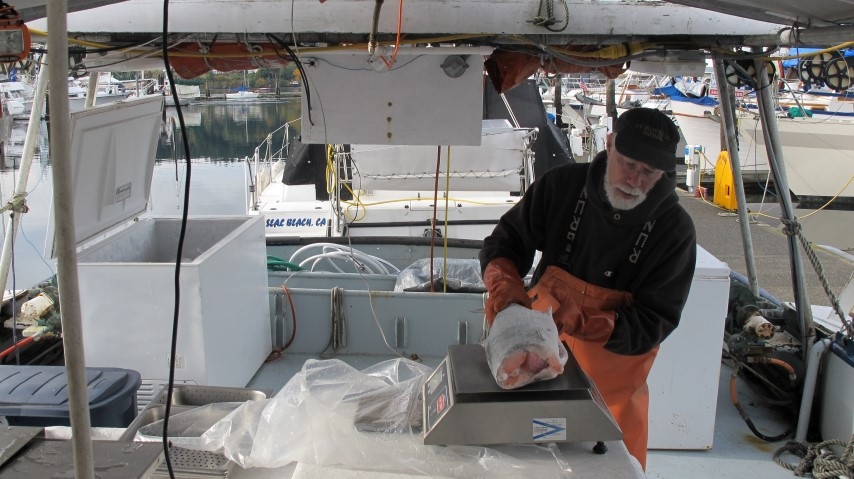
The information on this page is intended for educational purposes only and is subject to change. Fishermen should contact the agencies directly to determine what is required for their particular situation.
Washington State and Local Regulations, Permits and More for Seafood Alternative Markets
Fishermen considering selling their catch directly from their boat, a roadside stand/market, or other alternative market will need to follow regulations and guidelines and obtain specific licenses, registrations, permits, and certificates from several state and local agencies in addition to the licenses and permits required to fish commercially. Here we provide selected general information, by agency, that highlights some of these requirements and associated fees (as of 2015).
Fishermen should contact the agencies below to determine current requirements and fees and to ensure they are in compliance. When doing so, fishermen will need to be able to describe the seafood products they will be selling -- species, product form (e.g., whole, filet, smoked) -- and the type of alternative market(s) they will use.
Washington Department of Fish and Wildlife (WDFW)
License Division(link is external)
Contact: Commercial Support Personnel
Telephone: 360.902.2464
Email: commercialsales@dfw.wa.gov(link sends e-mail)
Information Sources: Licenses, Applications and Fees(link is external), Definitions and Code(link is external)
The following provides selected information about two types of WDFW commercial fish business licenses that may be appropriate for fishermen selling their catch through seafood alternative markets. Fishermen should check the information sources above and contact WDFW directly for up-to-date information and to determine the requirements that apply to their specific situation.
Washington Department of Agriculture (WDA)
The WDA oversees the safe and legal handling and distribution of food products in Washington State. The following provides information about two WDA programs that may pertain to fishermen selling their catch through seafood alternative markets. Fishermen should check the information sources for each program and contact WDA directly for up-to-date information and to determine the requirements that apply to their specific situation.
Weights and Measures Program(link is external)
Contact: Licensing Specialist
Phone: 360.902.2035
Email: wtsmeasures@agr.wa.gov(link sends e-mail)
Information Source: Weighing and Measuring Devices(link is external), NTEP Conformance Database(link is external)
Food Safety Program(link is external)
Contact: Food Safety Officer
Phone: 360.902.1876
Email: foodsafety@agr.wa.gov(link sends e-mail)
Information Source: County Food Safety Contacts(link is external)
Departments of Public Health
Both state and local public health agencies regulate and assist with seafood safety, ensuring safe and sanitary seafood handling and distribution. Fishermen should check the information sources provided below and contact both the WDOH and the local (county and/or city) environmental health department directly for up-to-date information and to determine the requirements that apply to their specific situation.
Washington Department of Health (WDOH)
Environmental Health and Safety Division(link is external)
Contact: Food Safety Specialist
Phone: 360.236.3385
Email: doheheha@doh.wa.gov(link sends e-mail)
Information Source:
This division of WDOH includes several programs with staff who assist local governments and other agencies with environmental health and safety. Here we provide select information about two programs that may pertain to fishermen selling their catch through seafood alternative markets.
Food Safety Program(link is external)
The WDOH Food Safety Program team partners with local health departments (along with other agencies) to promote safe practices in food service and retail settings. The Washington State Retail Food Code(link is external) – adapted from the 2009 FDA Food Code with some modifications(link is external)-- provides the safety standards for food served or sold to the public, and includes retail shellfish requirements and food worker card regulations.
Shellfish Program(link is external)
Contact: Commercial Licensing
Phone: 360.236.3330
Information Source: Shellfish Program Contacts(link is external); Licenses and Applications(link is external)
The WDOH Shellfish Program regulates shellfish food safety through testing of both filter-feeding shellfish (e.g., geoduck and other clams, scallops) and the water where they grow and are harvested by commercial (and recreational) fishermen. The following provides information about one type of license from the Shellfish Program that may pertain to fishermen selling their catch through seafood alternative markets.
County Health Department
Contact: Food Program Coordinator or Plans Examiner
Phone: Varies by county (County Contacts(link is external))
County and city environmental health departments inspect and license food operations to ensure safe food handling practices. Requirements and fees vary among both local environmental health departments and types of seafood alternative markets. The permits and certifications listed below, as well as others, may be required by a given environmental health department. For more information, contact the Department of Health in the county in which you will be operating your business (see county contact list above).
Local Authorities
Depending on the type of market and where it is located, additional permits and fees may be required by local authorities. Below are a few examples of such requirements. Fishermen should contact local authorities directly for up-to-date information and to determine the requirements that apply to their specific situation.
Adapted from Johnson T. (ed). 2007. Appendix L: Marketing your own catch: State and local Regulations in Washington. In: Fishermen’s Direct Marketing Manual. P. 81.